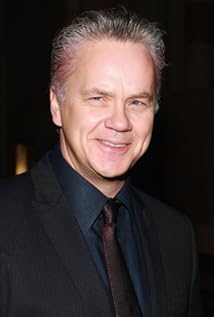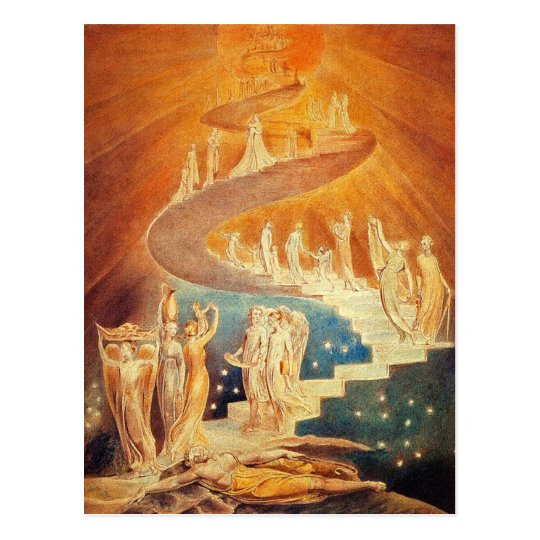- Joined
- Dec 12, 2009
- Messages
- 32,174
- Reaction score
- 10,210
NOTE to NON-MEMBERS: Interested in joining the SHERDOG MOVIE CLUB? Shoot me a PM for more info.
Here's a quick list of all movies watched by the SMC.
Not exactly a stairway to heaven but close enough I suppose...

Born in Peterborough, England and raised in London, Lyne attended the Highgate school, where his father was a teacher. In his twenties, he played trumpet with the jazz group, The Colin Kellard Band. An avid moviegoer during his school days, he was inspired to make his own films by the work of French New Wave directors like Godard, Truffaut and Chabrol. Two of his early short films, "The Table" and "Mr. Smith," were official entries in the London Film Festival.
Film Overview
Premise: Mourning his dead child, a haunted Vietnam War veteran attempts to uncover his past while suffering from a severe case of dissociation. To do so, he must decipher reality and life from his own dreams, delusions, and perceptions of death.
Budget: $25 million
Box Office: $26.1 million
Trivia
(courtesy of IMDB)
* All SFX were filmed live, with no post-production. For example, to achieve the famous 'shaking head' effect, director Adrian Lyne simply filmed the actor waving his head around (and keeping his shoulders and the rest of his body completely still) at 4fps, resulting in an incredibly fast and deeply disturbing motion when played back at the normal frame-rate of 24fps.
* Certain imagery was inspired by the photographs of Joel-Peter Witkin. Most recognizably, the image of the hooded, legless man shaking his head is inspired by Witkin's 1976 photograph "Man With No Legs".
* In Bruce Joel Rubin's original screenplay, all of the demons who appear throughout the film were typical biblical demons with horns, wings, cloven hooves etc. Director Adrian Lyne felt that this kind of imagery could very easily come across as comic, which would destroy the film. He felt that the fact that the imagery was so far from human lessened its impact, and as such, he decided he wanted the demons to be humanesque, but not quite human. During his research into this (which was when he discovered the photography of Joel-Peter Witkin), Lyne came across the Thalidomide scandal. Thalidomide was a drug made available for purchase from 1957 to 1961. Ostensibly, it was designed to treat pregnant women; primarily as an antiemetic to combat morning sickness, and secondarily as a sleeping aid. However, prior to its release, inadequate clinical tests were carried out, leading to roughly 10,000 children in Africa and Europe being born with severe physical deformities because their mothers had taken thalidomide during their pregnancy. The most common defects were phocomelia, dysmelia, amelia and polymelia; all conditions which affect the appearance of the limbs. During his research, Lyne studied the Thalidomide case, and came to feel that the birth defects caused by the drug represented the perfect starting place for his redesign of Rubin's demons. The Thalidomide scandal was also the inspiration for David Cronenberg's Scanners (1981).
* Adrian Lyne turned down directorial duties on The Bondfire of the Vanities (1990) so he could direct Jacob's Ladder. His first choice for the role of Jacob Singer was Tom Hanks, but, by coincidence, Hanks turned down the film so he could make The Bonfire of the Vanities.
* According to director Adrian Lyne, the drug aspect of the story was inspired by the Martin Lee and Bruce Shlain book, "Acid Dreams: The CIA, LSD and Sixties Rebellion".
* According to director Adrian Lyne, most of the dialogue in the opening scene between the soldiers was improvised on set by the actors themselves, especially the conversation between George (Ving Rhames) and Jacob (Tim Robbins) about masturbation.
* The Bergen Street station in the film was actually an abandoned, lower level portion of the station, which had to be re-tiled and fixed to look as if it was still in working condition.
Members: @europe1 @MusterX @Scott Parker 27 @the muntjac @Cubo de Sangre @sickc0d3r @chickenluver @FrontNakedChoke @AndersonsFoot @Tufts @Coolthulu
Here's a quick list of all movies watched by the SMC.
Not exactly a stairway to heaven but close enough I suppose...

Our Director
Adrian Lyne

Adrian Lyne

Adrian Lyne (Director/Writer/Producer) is the creative force behind some of the most talked-about movies of our time, among them, "Fatal Attraction", "9 1/2 Weeks", "Flashdance", "Indecent Proposal", "Jacob's Ladder" and "Unfaithful".Born in Peterborough, England and raised in London, Lyne attended the Highgate school, where his father was a teacher. In his twenties, he played trumpet with the jazz group, The Colin Kellard Band. An avid moviegoer during his school days, he was inspired to make his own films by the work of French New Wave directors like Godard, Truffaut and Chabrol. Two of his early short films, "The Table" and "Mr. Smith," were official entries in the London Film Festival.
Our Star

Born in West Covina, California, but raised in New York City, Tim Robbins is the son of former The Highwaymen singer Gil Robbins and actress Mary Robbins (née Bledsoe). Robbins studied drama at UCLA, where he graduated with honors in 1981. That same year, he formed the Actors' Gang theater group, an experimental ensemble that expressed radical political observations through the European avant-garde form of theater. He started film work in television movies in 1983, but hit the big time in 1988 with his portrayal of dimwitted fastball pitcher "Nuke" Laloosh in Bull Durham (1988). Tall with baby-faced looks, he has the ability to play naive and obtuse (Cadillac Man (1990) and The Hudsucker Proxy (1994)) or slick and shrewd (The Player (1992) and Bob Roberts (1992)).
Film Overview
Premise: Mourning his dead child, a haunted Vietnam War veteran attempts to uncover his past while suffering from a severe case of dissociation. To do so, he must decipher reality and life from his own dreams, delusions, and perceptions of death.
Budget: $25 million
Box Office: $26.1 million
Trivia
(courtesy of IMDB)
* All SFX were filmed live, with no post-production. For example, to achieve the famous 'shaking head' effect, director Adrian Lyne simply filmed the actor waving his head around (and keeping his shoulders and the rest of his body completely still) at 4fps, resulting in an incredibly fast and deeply disturbing motion when played back at the normal frame-rate of 24fps.
* Certain imagery was inspired by the photographs of Joel-Peter Witkin. Most recognizably, the image of the hooded, legless man shaking his head is inspired by Witkin's 1976 photograph "Man With No Legs".
* In Bruce Joel Rubin's original screenplay, all of the demons who appear throughout the film were typical biblical demons with horns, wings, cloven hooves etc. Director Adrian Lyne felt that this kind of imagery could very easily come across as comic, which would destroy the film. He felt that the fact that the imagery was so far from human lessened its impact, and as such, he decided he wanted the demons to be humanesque, but not quite human. During his research into this (which was when he discovered the photography of Joel-Peter Witkin), Lyne came across the Thalidomide scandal. Thalidomide was a drug made available for purchase from 1957 to 1961. Ostensibly, it was designed to treat pregnant women; primarily as an antiemetic to combat morning sickness, and secondarily as a sleeping aid. However, prior to its release, inadequate clinical tests were carried out, leading to roughly 10,000 children in Africa and Europe being born with severe physical deformities because their mothers had taken thalidomide during their pregnancy. The most common defects were phocomelia, dysmelia, amelia and polymelia; all conditions which affect the appearance of the limbs. During his research, Lyne studied the Thalidomide case, and came to feel that the birth defects caused by the drug represented the perfect starting place for his redesign of Rubin's demons. The Thalidomide scandal was also the inspiration for David Cronenberg's Scanners (1981).
* Adrian Lyne turned down directorial duties on The Bondfire of the Vanities (1990) so he could direct Jacob's Ladder. His first choice for the role of Jacob Singer was Tom Hanks, but, by coincidence, Hanks turned down the film so he could make The Bonfire of the Vanities.
* According to director Adrian Lyne, the drug aspect of the story was inspired by the Martin Lee and Bruce Shlain book, "Acid Dreams: The CIA, LSD and Sixties Rebellion".
* According to director Adrian Lyne, most of the dialogue in the opening scene between the soldiers was improvised on set by the actors themselves, especially the conversation between George (Ving Rhames) and Jacob (Tim Robbins) about masturbation.
* The Bergen Street station in the film was actually an abandoned, lower level portion of the station, which had to be re-tiled and fixed to look as if it was still in working condition.
Members: @europe1 @MusterX @Scott Parker 27 @the muntjac @Cubo de Sangre @sickc0d3r @chickenluver @FrontNakedChoke @AndersonsFoot @Tufts @Coolthulu







